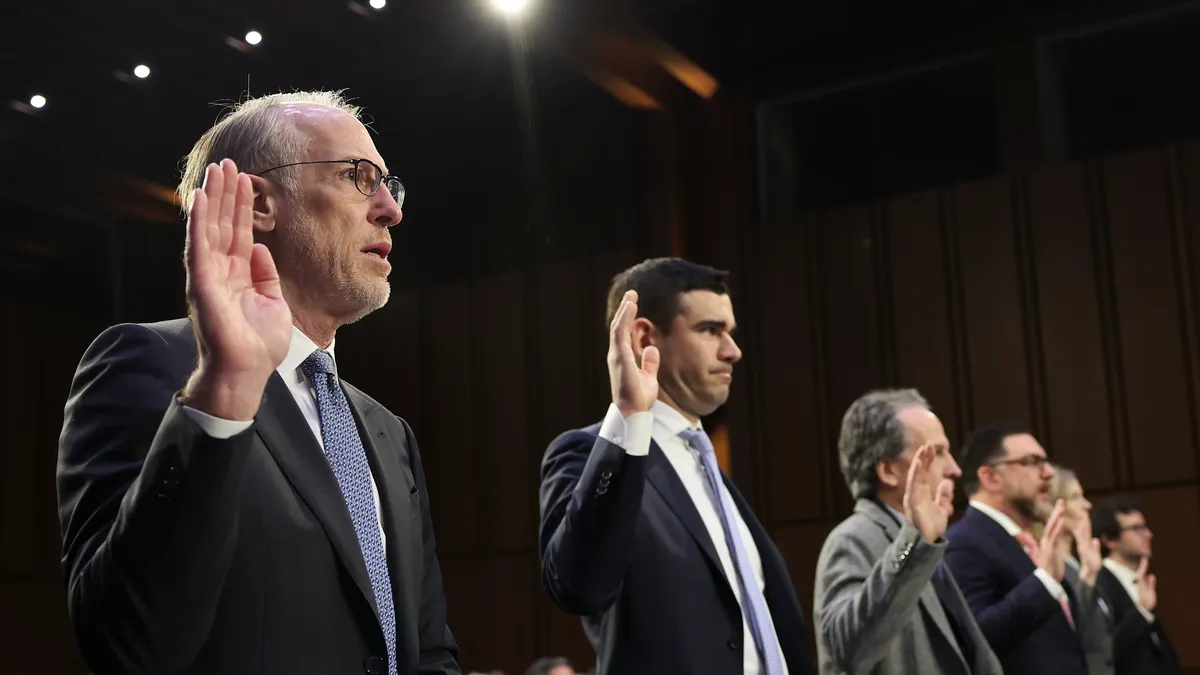Competition specialists have complained that the settlement agreement with the Department of Justice that allowed Live Nation to acquire Ticketmaster in 2010 was focused on the wrong problem. Now that DOJ will be suing Live Nation on antitrust grounds, as reported by The Wall Street Journal, the critics appear to have been right.
In its April 15 report, The Wall Street Journal says DOJ could sue Live Nation as soon as next month. The lawsuit “would allege the nation’s biggest concert promoter has leveraged its dominance in a way that undermined competition for ticketing live events,” the Journal reported.
More than a dozen years ago, critics anticipated concert prices going up if DOJ allowed Live Nation, the country’s largest concert promoter and also a dominant arena owner and artist management company, to combine with Ticketmaster, the country’s largest ticket seller.
"I just don't see how this end result helps consumers," Jerry Mickelson, an independent concert promoter, said at the time.
But DOJ let the deal go through after Live Nation agreed to divest one of its ticketing divisions and license its ticketing software to Ticketmaster’s biggest competitor at the time. The company also agreed to a stipulation that it wouldn’t retaliate against venue operators for using ticketing services from competitors.
"We were prepared to litigate this case," Christine Varney, head of DOJ’s antitrust division at the time, said in announcing the agreement in 2010.
Varney said she expected ticket prices to go down because of the concessions Live Nation made, but that didn’t happen. Especially since the pandemic lifted, concert ticket prices have skyrocketed.
“This is all the definition of monopoly,” Sen. Amy Klobuchar (D., Minn.), said last year during a hearing in which she and other lawmakers, on both sides of the aisle, complained to Live Nation’s top executive about spiraling prices. “Live Nation is so powerful that it doesn’t even need to exert pressure.”
The Senate hearing came after Live Nation’s website crashed during ticket sales for Taylor Swift’s Eras tour in 2022. Fans waited for hours only to lose the tickets they had in their online carts when the site crashed, the Journal reported.
Live Nation’s president, Joe Berchtold, said bots had crashed the site. “This is what led to a terrible consumer experience that we deeply regret,” he said at the hearing.
Horizontal concern
Critics have said that DOJ was viewing the Live Nation-Ticketmaster deal as a vertical issue when it should have been seen as something broader than that and not allowed to go through.
“From a straightforward horizontal concern, this merger is anticompetitive,” David Balto, an antitrust lawyer with Center for American Progress, said at the hearing.
Although Live Nation had some vertical competition with Ticketmaster in the market for ticket sales — which led to its divestiture of its ticketing subsidiary — ticketing companies don’t set prices, critics said. Promoters set prices in the deals they make with the arenas and the talent agents. Since Live Nation has a commanding share in all three of those markets, a more effective remedy would have been to break up Live Nation. The Ticketmaster acquisition, in a sense, was a side issue.
“Competing ticket services really have nothing to do with concert-ticket pricing,” the Journal in 2010 reported a critic of the deal saying.
“Live Nation has a tight grip on venues,” the Journal said in its reporting. “It owns or runs 135 major concert venues around the world, including most of the outdoor amphitheaters in the U.S.”
It also is the largest promoter and one of the largest artist management firms.
“As long as Live Nation remains the dominant promoter and ticketer, competition will continue to suffer,” Jack Groetzinger, chief executive of ticketing platform SeatGeek, said at the hearing. “The only way to restore competition is to break up Live Nation and Ticketmaster.”
Federal Trade Commission Chair Lina Khan indicated in an interview last year with The Wall Street Journal that she is sympathetic to the horizontal concerns that critics have raised. “When you have that type of integration [promotion, arena ownership and artist representation] you create certain kinds of conflicts of interest,” she said. DOJ “can do investigations into whether current business practices are unlawful under separate laws.”
DOJ has in fact been investigating the company, according to a New York Times report from last year. “The investigation is focused on whether Live Nation Entertainment has abused its power over the multibillion-dollar live music industry,” the Times said.
At least one industry analyst thinks the DOJ lawsuit won’t seek to break up Live Nation, given the agency’s reluctance to go after vertical deals like the Ticketmaster acquisition, but rather will use the lawsuit to push for another settlement that will result in bigger concessions than it sought last time.
“The feeling that I got is … this will come to a head and it is possible that in addition to the consent decree that they do have [there] could be a negotiation for additional, probably behavioral concessions, that come out of this,” Brandon Ross of Lightshed Partners said on X. “I don't know if it's something around exclusivity [the idea that an arena must use Ticketmaster for ticket sales to get an artist] or what it may be, but I don’t think this [company] is going to get broken up.”
In its report on the upcoming lawsuit, the Journal didn’t have anyone from DOJ on the record about the focus of the lawsuit. “The specific claims the department would allege couldn’t be learned,” the Journal said.



















